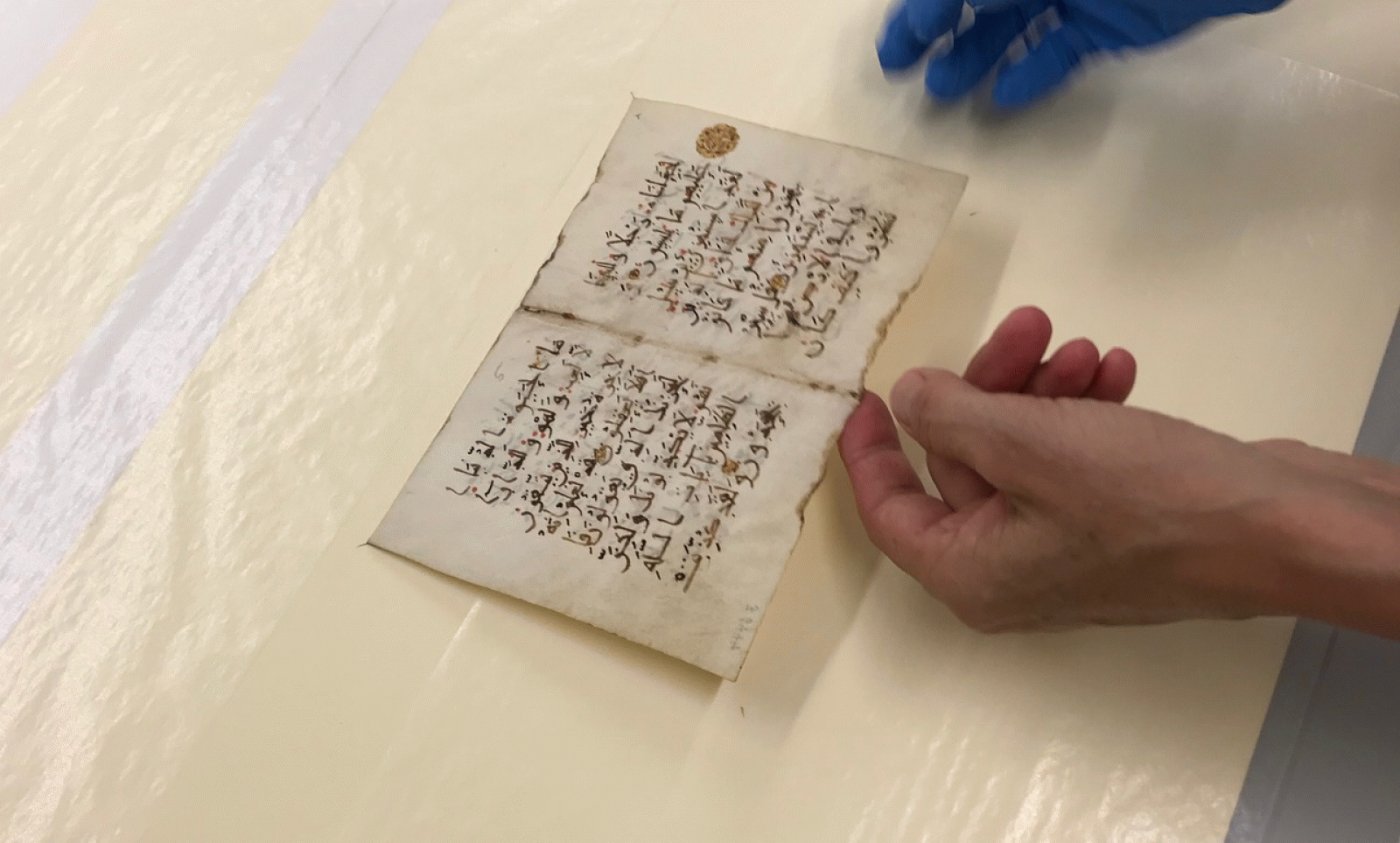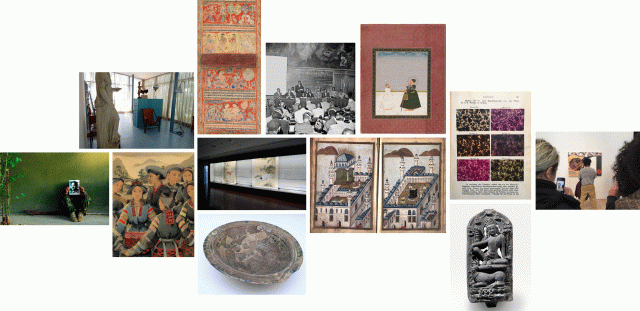Art Histories Seminar
Alya Karame: From Unification to Fragmentation: What Happened to the Qur'an Manuscript in the Tenth Century?

A fragment from a Qur’an copied in the 4th/10th century (Islamic Art Museum, Berlin I.6444).
In the 4th/10th century the Qur'an started being copied in new scripts, on paper instead of parchment and in the vertical format instead of the old horizontal format. These major transformations coincided with the collapse of the Abbasid Empire and formed the backdrop on which new visual paradigms developed within a transregional landscape. The talk approaches this period by asking 'how' and 'why' changes happened. First, it illustrates how the new Qur'anic scripts emerged from already existing scribal traditions. Second, it shows the ways in which the new material and format were gradually adopted in the realm of the Qur'an and highlights continuities and ruptures from older illumination traditions. The talk also explores the reasons behind these transformations, from the political to the aesthetic, and investigates the shifts in the use of the Qur'an. By perceiving the manuscript as material culture, the aim of the talk is to offer a more holistic understanding of the Qur'an in the 4th/10th century.
Alya Karame is a research associate of the "Art Histories and Aesthetic Practices" programme, holder of the Barakat Trust Award (2018-2019) and a research associate of the Khalili Research Centre at the University of Oxford where she is working on her book project entitled Continuity, Change and Rupture: Qur'an Manuscripts of the Central and Eastern Islamic Lands 950-1200 CE. In 2016, Alya joined the fellowship and research program "Connecting Art Histories in the Museum" (KHI and State Museums in Berlin) and was based for two years at the Museum of Islamic Art in Berlin. She completed her PhD in 2016 in Islamic Art History at the University of Edinburgh and her MA in History of Art & Archaeology at the School of Oriental and African Studies in 2011. In the last few years, she had lectured widely on her work, published articles in peer reviewed journals and was the recipient of a number of awards in support of her research. Alya had also led workshops on the Qur'an in museums and academic institutions. Having been a graphic designer with an interest in visual culture, Alya taught design, visual culture, and art of calligraphy courses since 2007. Starting September 2019, she will be joining the American University of Beirut as a Mellow Fellow in the Centre of Arts and Humanities and will be affiliated to the Fine Arts and Art History department.
27 maggio 2019, ore 17:00
Forum Transregionale Studien
Wallotstr. 14
14193 Berlin
www.forum-transregionale-studien.de
Avviso
Questo evento viene documentato fotograficamente e/o attraverso riprese video. Qualora non dovesse essere d’accordo con l’utilizzo di immagini in cui potrebbe essere riconoscibile, da parte del Kunsthistorisches Institut in Florenz a scopo di documentazione degli eventi e di pubbliche relazioni (p.e. social media) la preghiamo gentilmente di comunicarcelo.



